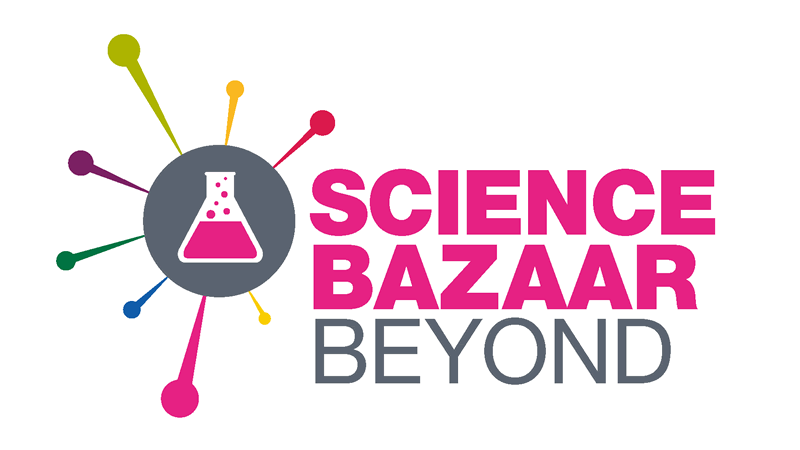
In October 2022 and February 2023, the Poetry Centre ran a stall at the Oxford Brookes Science Bazaar. We invited young visitors to hunt for toy minibeasts and then to write poems inspired by their visit to the Bazaar or by science in general. We hope you enjoy reading them – thank you so much to everyone who contributed a poem!
Special thanks to our Poetry Centre Interns: Maleeha, Bethany, Rhiannon, Rosa, Anna, and Lily, who did a wonderful job of encouraging the poets and running the event. We look forward to more poems at the next Science Bazaar on 3 February 2024 – join us then if you can! To find out more about the Poetry Centre, visit our website or find us on Twitter, Facebook, and Instagram.
The poems
creepy crawly
insect, nice slow
loris
dancing butterflies!
by Amber

They call me a ladybug,
but I wonder why,
It’s not like you can’t see my wings
when I fly,
the red and black spots in
between, the cicadas laugh
at me, sometimes scream.
Land on the surface, don’t be long,
the kids will come and
I’ll be gone, they call me
ladybug with the boggled eyes,
yet treat me like
the common fly.
by Evan
Super-sonic crawling
caterpillar moving fast and
Slow. Wriggle, squirm,
crawl and run. Seethe
Caterpillar roam under
the stones, furry
and hideous for
some.
by Naomi
Spiders crawl, leap, plunge
and hurtle.
Fire-eyed, hideous creatures
trapping others in cages of web.
Energetic animals roam
around looking for their
Dinner, clamber over rocks,
grass and mud. Super-
sonic, terrific monsters,
moving through the earth
adventurers they are. I want
you to know I am very
proud
by Naomi

A mini-beast’s line of thoughts
An explosion of logic occurred
inside the mini-beast’s head,
and from that moment on,
the wild bugs thought no more
about minuscule things
like doughnuts or some such
nonsense.
All they could think about
were things, big things such as
cages, to a chasm,
to things like life
and the small creature
almost blew up with thoughts.
by Frieda
Fantastic Bugs
I have three new friends.
I found them in my back garden.
They are Bumpy the Woodlouse,
Stretchy the Worm and
Swirly the Snail.
They live their secretive life
crawling in damp soil.
But at night they clamber out
their den to have a galactic
disco party.
They go down the Helter Skelter
and eat soggy doughnuts!
Some people think my new
friends are hideous,
but I think they are terrific!
I’ll put them in the tall, tall grass
in the bug hotel made for them.
by Laura

Thank you, Nature
Thank you for the fresh and misty mornings.
Thank you for the sparkling droplets on the grass.
Thank you for the warmth of the Sun on my shoulders.
Thank you for the burning long sunsets.
Thank you for the glittery velvet nights.
Thank you for the multicoloured syrup-scented summers.
Thank you for the weedy foamy sea waves.
Thank you for the muddy earthy woods.
Thank you for the striking crashing thunderstorms.
Thank you for the crispy dazzling snowflakes.
Thank you for the damp soft moss sprinkled with snowdrops.
Thank you for all the things Nature gives us
And I hope it stays like this forever!!
by Laura
Wild
Some are big
some are small
but we are all
wild.
by Ray
One is big one is
Small. One is short
one is tall.
One is blue one is
red. One has pink
spots on its head.
by Olivia
One is big, one is
small, one is short
and one is tall.
Every animal
around this world
has different sizes
for ever and ever.
by Imogen

S is for unusual species
C is for chemical reactions
I is for igneous rock from volcanoes
E is for evolution of the world
N is for nature all around us
C is for creative scientific language
E is for environmentally-friendly recycling
By Lacey and Niall
The fossil was icy and the forest was
Energetic. The trees were naturally grown.
by Sophie

It was startling when I found
the ladybird in an extinguisher
by Rose
Haikus are easy
But sometimes they don’t make sense
Refrigerator
by Anon
I think it is nice to hunt for animals around a building. You can experiment your hide and seek skills whilst educating the terrific looking bugs.
by Zack
The wild
When the bees sting,
I think of every living thing, like wild life.
The worms turn into squiggles,
and do wriggle,
but there is more wildlife around.
Crickets leap and leap and leap,
one day I would like a peep.
Owls are not in sight,
but do sleep over night.
Wildlife is beautiful.
by Melek

Beakers, test tubes and chemicals, oh my,
but not that kind of pie,
chemistry, biology, all the kinds of science are quite bizarre,
but nonetheless fans of science we all are.
by Zoe
With science you have technology
without science there would be
no homes with science we have
tractors, cars, homes, boats, TV
and artillery without science
we would not have won WWI or WWII
so science is important for
animals, children and everyone.
by Leighton
Apples grow from apple trees
because they are healthy
They grow from seeds
by Laurie
It is shocking to find
how many animals
crawl and leap.
This stall at the bazaar is completely
doughnuts.
by Amber
What am I?
Spotty
delicate wings
six legged minibeast
aphid-eating, roaming, hurtling
beetle
by Rees


